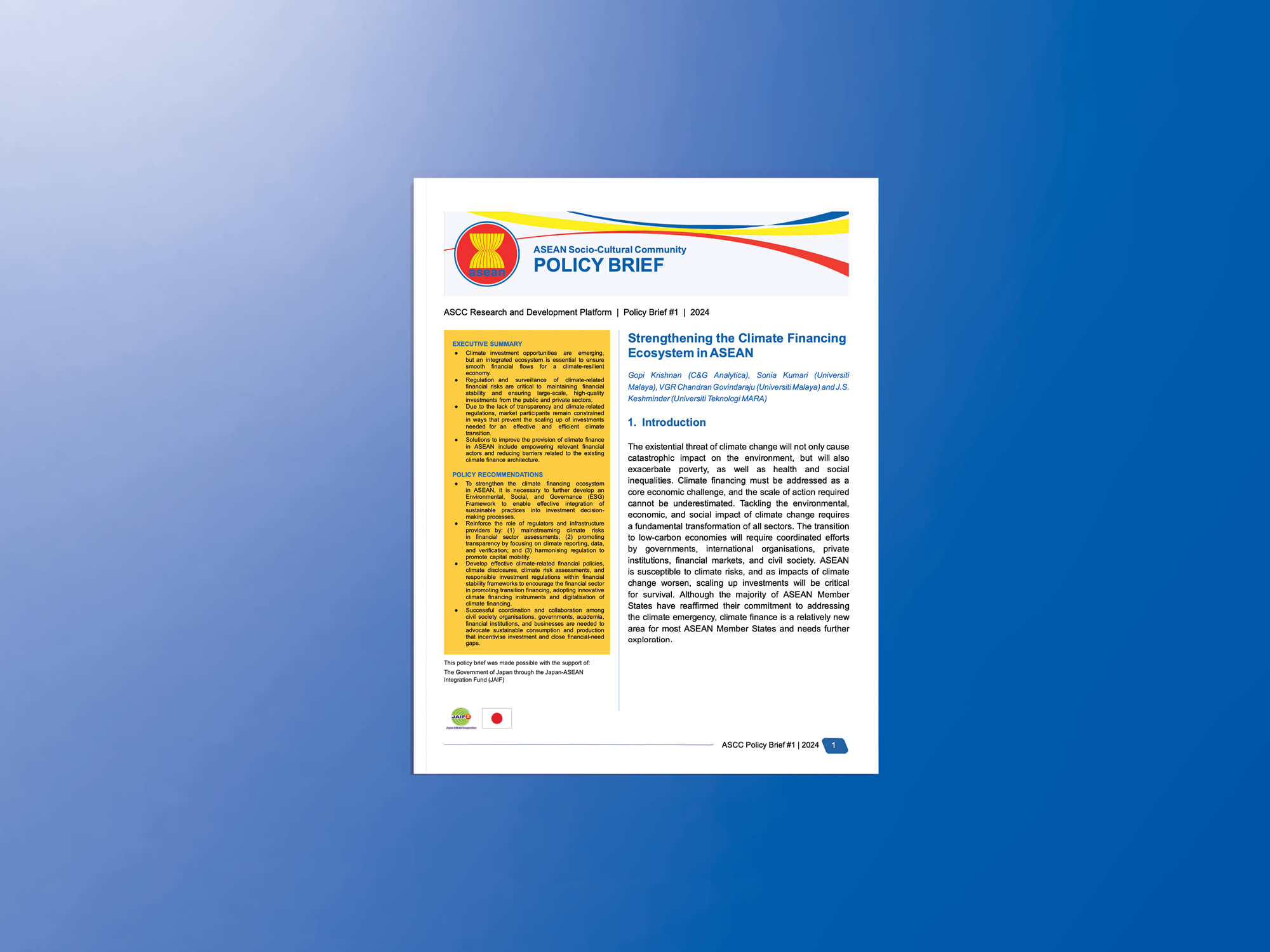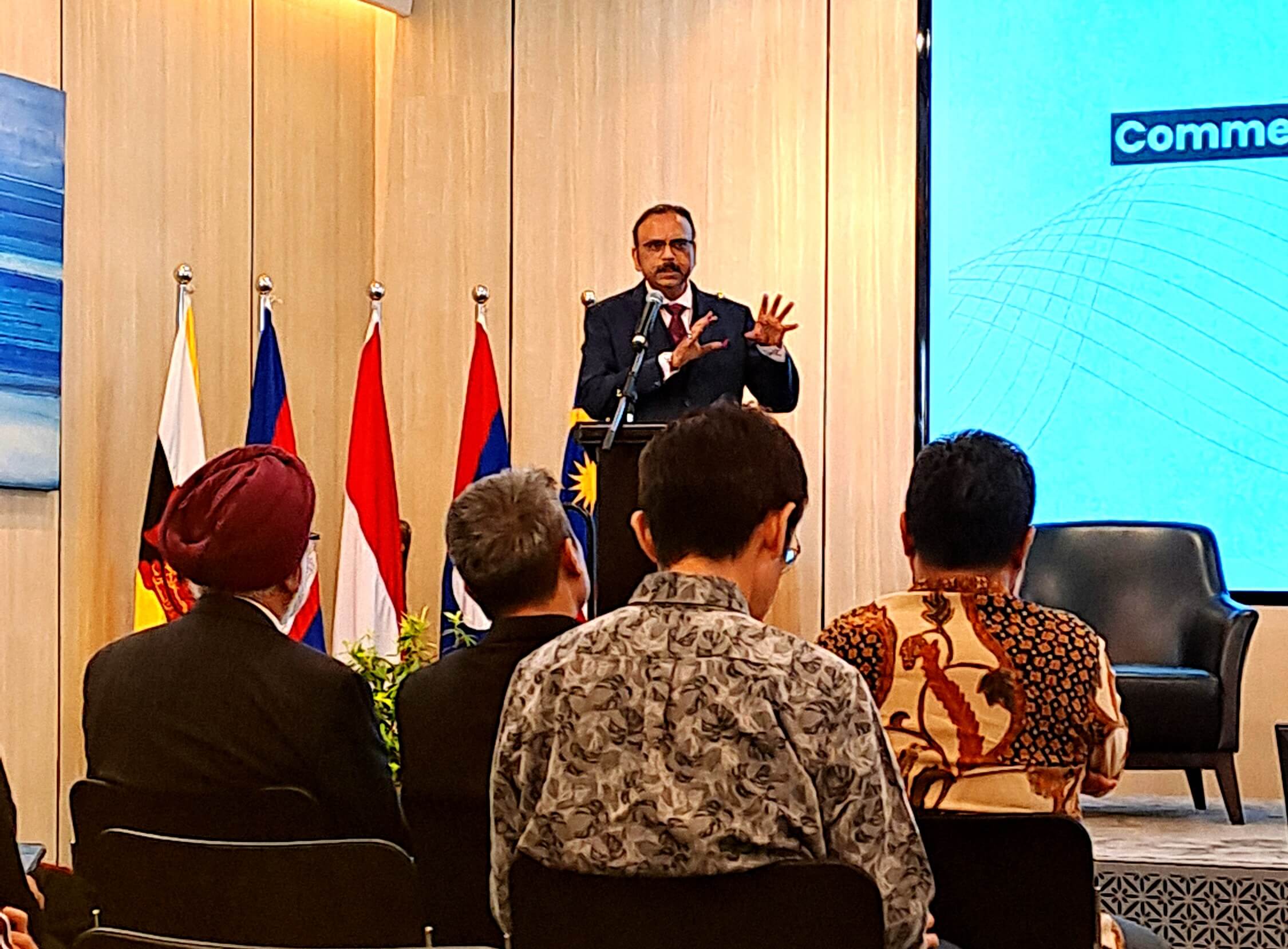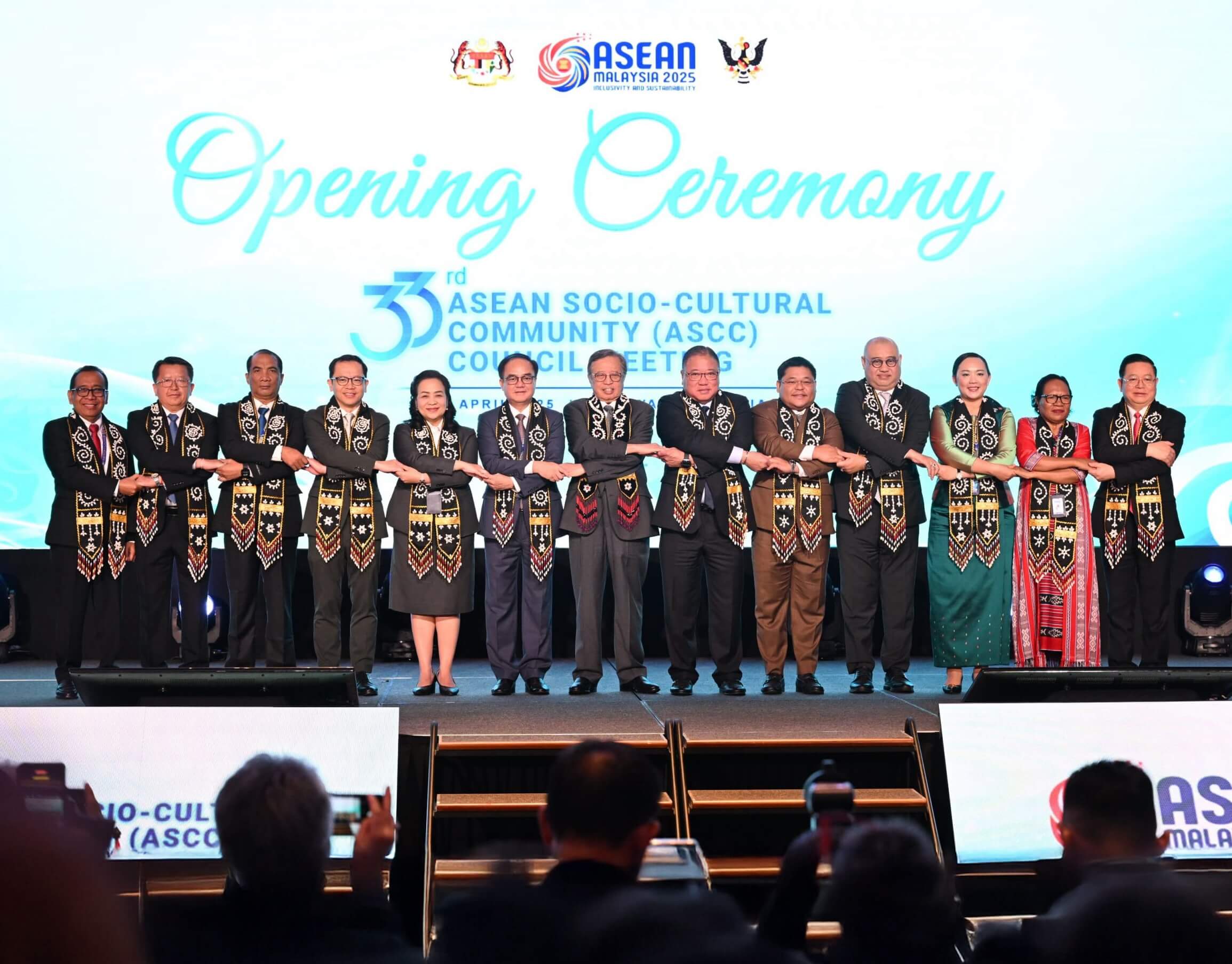





by Gopi Krishnan (C&G Analytica), Sonia Kumari (Universiti Malaya), VGR Chandran Govindaraju (Universiti Malaya), and J.S. Keshminder (Universiti Teknologi MARA)
Climate change is an existential threat that poses catastrophic environmental impacts and exacerbates poverty, health issues, and social inequalities. A product of the ASEAN Socio-Cultural Community (ASCC) Research and Development Platform on Climate Change, this policy brief offers critical insights and recommendations on the climate financing ecosystem in the ASEAN region.
Financial resources and sound investments are essential to reducing emissions, promoting adaptation, and building resilience. However, several ASEAN Member States heavily rely on public financing to meet their nationally determined contributions (NDC). Although private sector participation is gaining pace, it remains uneven across the region.
The ASCC Policy Brief No. 1 (2024) titled “Strengthening the Climate Financing Ecosystem in ASEAN” emphasises that while climate investment opportunities are rising, an integrated financial ecosystem is essential to ensure the smooth flow of finances for building a climate-resilient economy. However, the current lack of transparency and climate-related regulations pose a significant hurdle, hindering the scaling up of investments needed for an effective and efficient climate transition. The brief puts forward the following recommendations for a robust climate financing ecosystem:
i. Environmental, Social, and Governance (ESG) Framework
The brief suggests the development of an ESG Framework that aims to enable the effective integration of sustainable practices into investment decision-making processes, further strengthening the climate financing ecosystem. This framework attracts investments but also aligns with global sustainability goals.
ii. Reinforcing the role of regulators and infrastructure providers
The policy brief underscores the importance of reinforcing the role of regulators and infrastructure providers. Climate change has two main impacts that directly affect financial systems: (i) physical risks, which arise from climate and weather-related events, and (ii) transition risks, which are consequences that can arise as societies move toward a low-carbon economy. In this regard, mainstreaming climate risks in financial sector assessments, promoting transparency through climate reporting, data, and verification, and harmonising regulations to facilitate capital mobility across borders should be among the strategies to ensure regulatory readiness.
iii. Developing effective climate-related financial policies
The brief calls for developing effective climate-related financial policies and stresses the need to promote innovation in climate finance to attract domestic and international investments in climate change projects. Regulators must facilitate market innovation to expand the breadth and depth of climate finance instruments in ASEAN financial markets. In this sense, climate risk assessments, responsible investment regulations, and climate disclosures within financial stability frameworks are needed to encourage the financial sector to actively promote transition financing, adopt innovative climate financing instruments, and engage in the digitalisation of climate financing processes.
iv. Collaboration among stakeholders
The policy brief stresses the significance of collaboration among stakeholders. It calls for coordinated efforts among civil society organisations, governments, academia, financial institutions, and businesses. The goal is to advocate for sustainable consumption and production practices that incentivise investments and close financial need gaps.
In conclusion, the challenges faced by ASEAN Member States in accessing and distributing climate finance involve multiple sources and mechanisms. The ecosystem of climate financing is complex, given how intertwined the different segments of stakeholders are. In this context, ASEAN’s role is crucial. Therefore, solutions to improve climate finance delivery in the region include empowering relevant financial actors and leveraging ASEAN’s collective efforts to reduce barriers associated with the existing climate finance architecture.
This Policy Brief is a publication of the ASEAN Socio-Cultural Community Department of the ASEAN Secretariat. The views expressed in this publication are those of the author(s) and do not necessarily reflect the views of ASEAN and ASEAN Member States, the ASEAN Secretariat, and ASEAN Dialogue Partners. For more information about the ASCC Research and Development Platforms, contact the ASCC Analysis Division at ASCCAD@asean.org.









